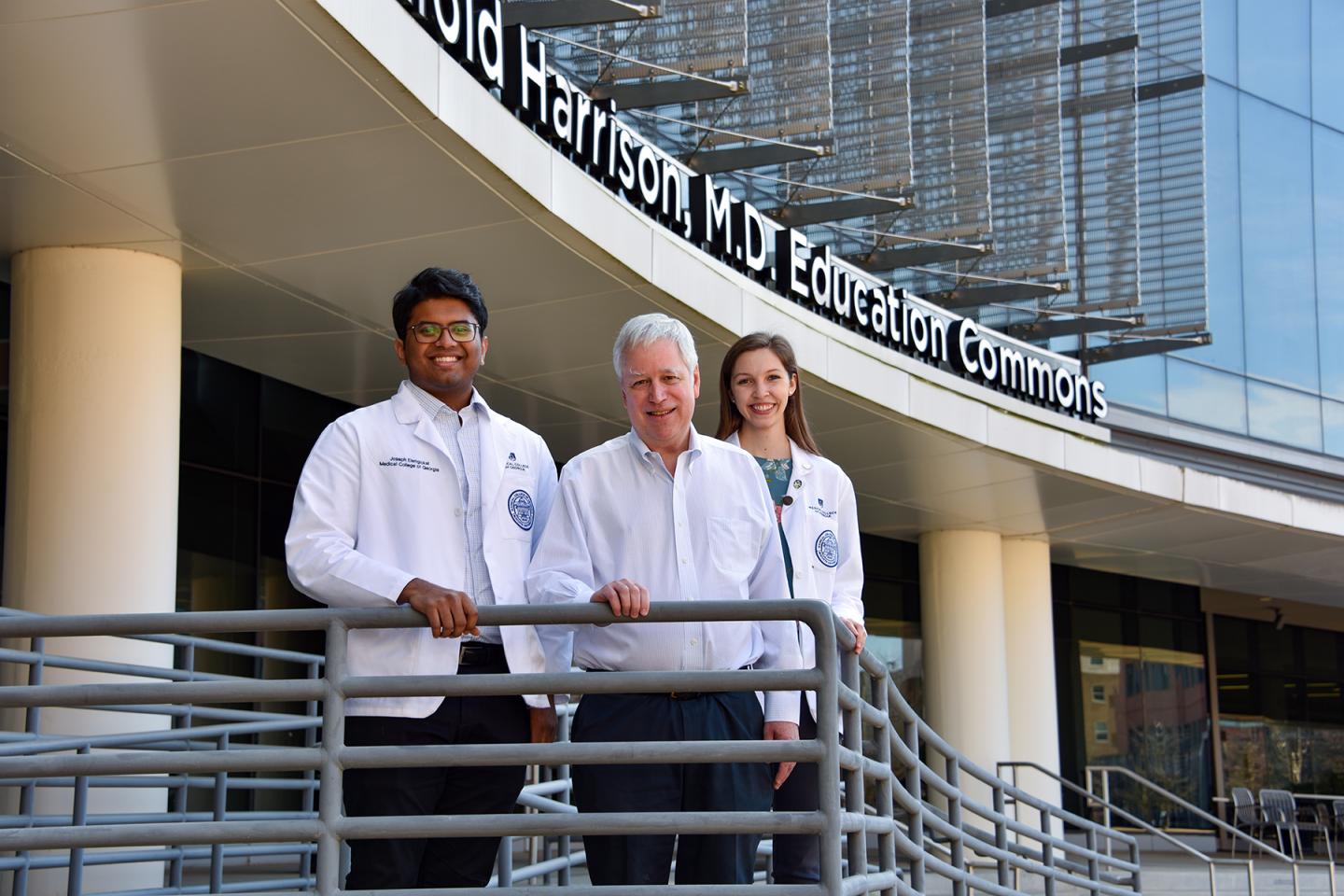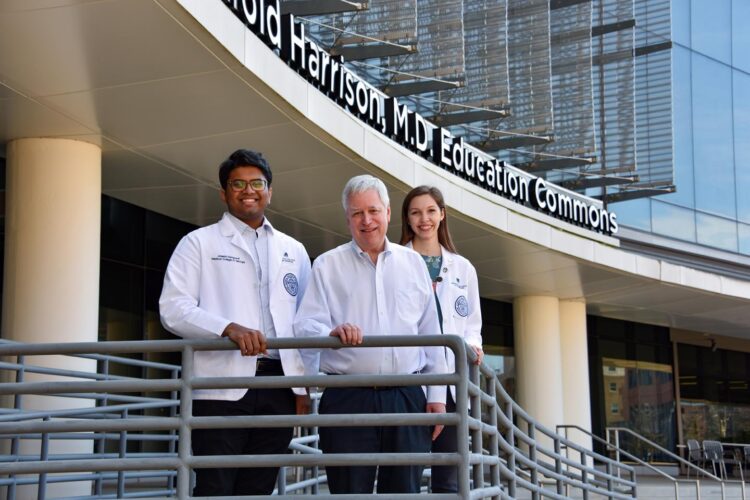
Credit: Kim Ratliff, Augusta University
When the COVID-19 pandemic forced medical students out of classrooms and clinical rotations this time last year, the state of Georgia’s only public medical school had to quickly rethink its traditional curriculum.
Faculty and staff at the Medical College of Georgia at Augusta University were able to quickly adapt and provide an online platform for learning about the pandemic and initiating student-led service projects to aid frontline workers and help educate the public, MCG faculty and students write in a review article in the journal Medical Science Educator.
The University System of Georgia suspended in-classroom learning in mid-March, so faculty at MCG shifted first- and second-year in person classes to online. Lectures were replaced with recorded materials and other in-person activities like small groups, clinical skills training and anatomy labs were either suspended or transitioned online.
“Our faculty were able to make that transition as smooth as possible by constantly listening to students’ feedback – asking what worked and what didn’t,” says second-year student Amanda Delgado, one of the article’s co-authors.
Later in March, the Association of American Medical Colleges called for a “pause” in patient contact and clinical training for third- and fourth-year medical students across the country. The medical school’s administration knew that “steps to ensure an enriching alternative to clinical education” had to be taken, the students write.
The medical school’s solution? Stand up a novel online Pandemic Medicine Elective — one it already had a model for.
An existing summer program, Areas of Concentration, had been traditionally offered to rising second-year students as a four-week elective that covered topics like ethics, leadership, global and public health, health policy and artificial intelligence and machine learning. Faculty with extensive knowledge in each field facilitated lectures on each topic.
When the COVID-19 pandemic hit, MCG’s academic administration was able to restructure that program to create the new elective. It consisted of four weeks of instruction — two hours of lectures, four days a week, and one day dedicated to experiential learning and service. Teams of physicians and educators from across the medical school and guest lecturers from other colleges and universities collaborated to educate students on topics ranging from the basic science of SARS-CoV-2 to the challenges it created for health care and the public sector, from how to deliver health care in a crisis to professional and personal responsibility.
The second version of the elective, launched in mid-May, was offered to rising second-year students, as well as a limited number of students and oral and maxillofacial surgery residents from the Dental College of Georgia and some students from The Graduate School. “With summer research programs cancelled, students were eager to engage with faculty and content experts on relevant health topics,” the students write.
The elective also offered rich experiences like the listening to interviews with physicians battling the pandemic in China and Germany and participating in a live question and answer session with a physician who compared her experience working in Guinea during the Ebola crisis to that of fighting COVID-19 in New York City.
As the pandemic raged on through the summer, a third iteration — called a “selective” because it was offered to a select group of students whose clinical rotations were being delayed — was launched in late June and focused on preparing students for what the clinical environment would look like when they returned to clinical activities during the pandemic. “While (it) included topics from previous iterations of the elective, it focused more heavily on the impact of the pandemic on providers and their delivery of care,” says MCG infectious disease physician Dr. Rodger MacArthur, the article’s senior author and the group’s faculty advisor.
A common thread among each version of the elective was student-led service learning projects. Some of those included developing a website to publish local COVID-19 news and resources, aiding frontline workers by purchasing and delivering N95 masks, gloves and face shields, raising $15,000 to purchase personal protective equipment and collaborating with musicians to provide them comfort. At the medical school’s regional campuses across the state, students worked with public health departments to help with contact tracing and work in their call centers.
By the completion of the elective, a total of 6,198 service hours had been logged by MCG students.
“So many people rose to the occasion and everyone worked together to help us continue our education and help our communities at the same time,” says second-year student Joseph Elengickal, the article’s corresponding author.
Next steps include conducting surveys and focus groups on students’ experiences during the elective with an eye toward improving students’ other educational experiences.
###
Other authors were second-year MCG students Shefali Jain, Elena Diller, Catherine Valli, Kesar Dhillon, Hee Lee and Rohitha Baskar.
Read the full article.
Media Contact
Jennifer Scott
[email protected]





